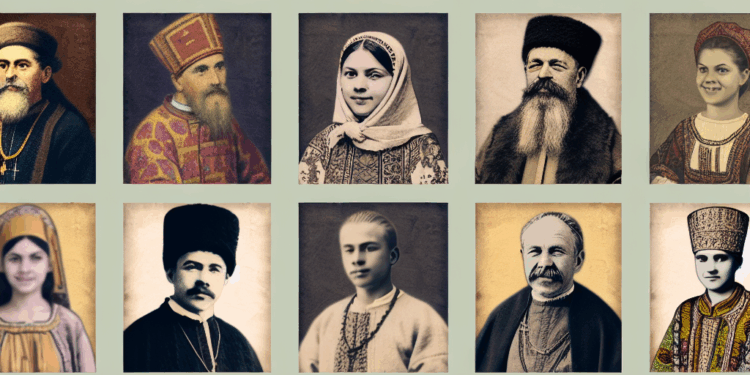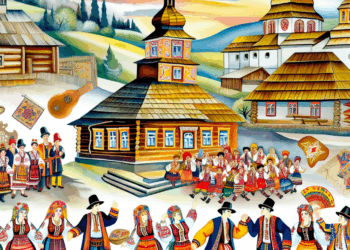Introduction
The history of Bukovyna is full of bright and significant personalities who left a noticeable trace in the culture and public life of this region. One of such figures is Metropolitan Joseph Slivitsky, a canonised saint of the Orthodox Church. His life and activities cover an important period in the history of Bukovina and, in particular, the city of Chernivtsi. The Metropolitan played a key role in the development of spiritual life, education and culture, helping to shape the identity of the region.
Biography
Early years
Joseph Slivitsky (real name Joseph Mikhailovich Slivitsky) was born on 4 May 1874 in the village of Nerusha (today in Ukraine). He came from a peasant family and from an early age showed a desire for learning and spiritual life. Joseph began his education at the local school, and later continued it at the gymnasium in Chernivtsi and the theological institute in Vienna. He was always surrounded by teachers and priests who inspired him to think deeply about faith and service to God.
Spiritual career
In 1898 Joseph was ordained a priest and a few years later became an archimandrite. His high moral qualities, intellectual abilities and devotion to the faith were noticed by the local bishops. In 1944 he became Metropolitan of Bukovina and Dalmatia. In this position Joseph actively followed the development of church life and cultural enlightenment in the region.
Major achievements
Development of church education
One of the most important achievements of Metropolitan Slivitsky was the reform of the system of church education. He established many educational institutions, among which were seminaries and theological academies. With his support, pedagogical activity was developed, which contributed to the improvement of the level of education of clergy and laity. Slivitsky paid special attention to the spiritual education of young people, which later contributed to the formation of a more mature and responsible generation of believers.
Cultural restoration and activism
In the conditions of interwar and postwar political instability, Metropolitan Slivytsky became a defender of the cultural identity of the Ukrainian people. He supported various cultural actions and projects aimed at preserving Ukrainian history, language, and traditions. He also contributed to the restoration of Orthodox churches that had suffered during wars and repressions.
Role in public life
Like many prominent personalities of his time, Joseph Slivytsky actively participated in public life and politics. He advocated for the rights of the Ukrainian people in a multicultural environment where different nationalities coexisted. His political views and spiritual acts were respected among both Orthodox and other denominations.
Impact on the region
Metropolitan Joseph Slivitsky had a significant impact on the spiritual and cultural development of Bukovina. His efforts in education and enlightenment led to an increase in the level of knowledge among the population. He became a symbol of unity and cohesion for the local population in difficult times.
In addition, his leadership contributed to the formation of a more active citizenship among the locals. Under his leadership, church and cultural organisations sprang up that brought people together regardless of their ethnicity. This fostered a new level of identity in which elements of different cultures were intertwined.
The context of the era
The time of Metropolitan Joseph Slivitsky’s life was extremely challenging. Bukovina remained an arena of conflicts and intersection of interests of different powers – Austria-Hungary, Romania and later the Soviet Union. This period was marked by many political and social changes that had a significant impact on the life of the population.
Conclusion
Metropolitan Joseph Slivitsky remains one of the most significant and luminous figures in the history of Bukovina. His life and activity represent a model of service and devotion to his people and faith. Thanks to his efforts, the region has preserved its cultural identity and has become a place where traditions and ideas of different nations are intertwined. Slivitsky’s contribution to the development of education, culture and spirituality continues to influence modern Bukovina, becoming a symbol of unity and co-operation between peoples.








